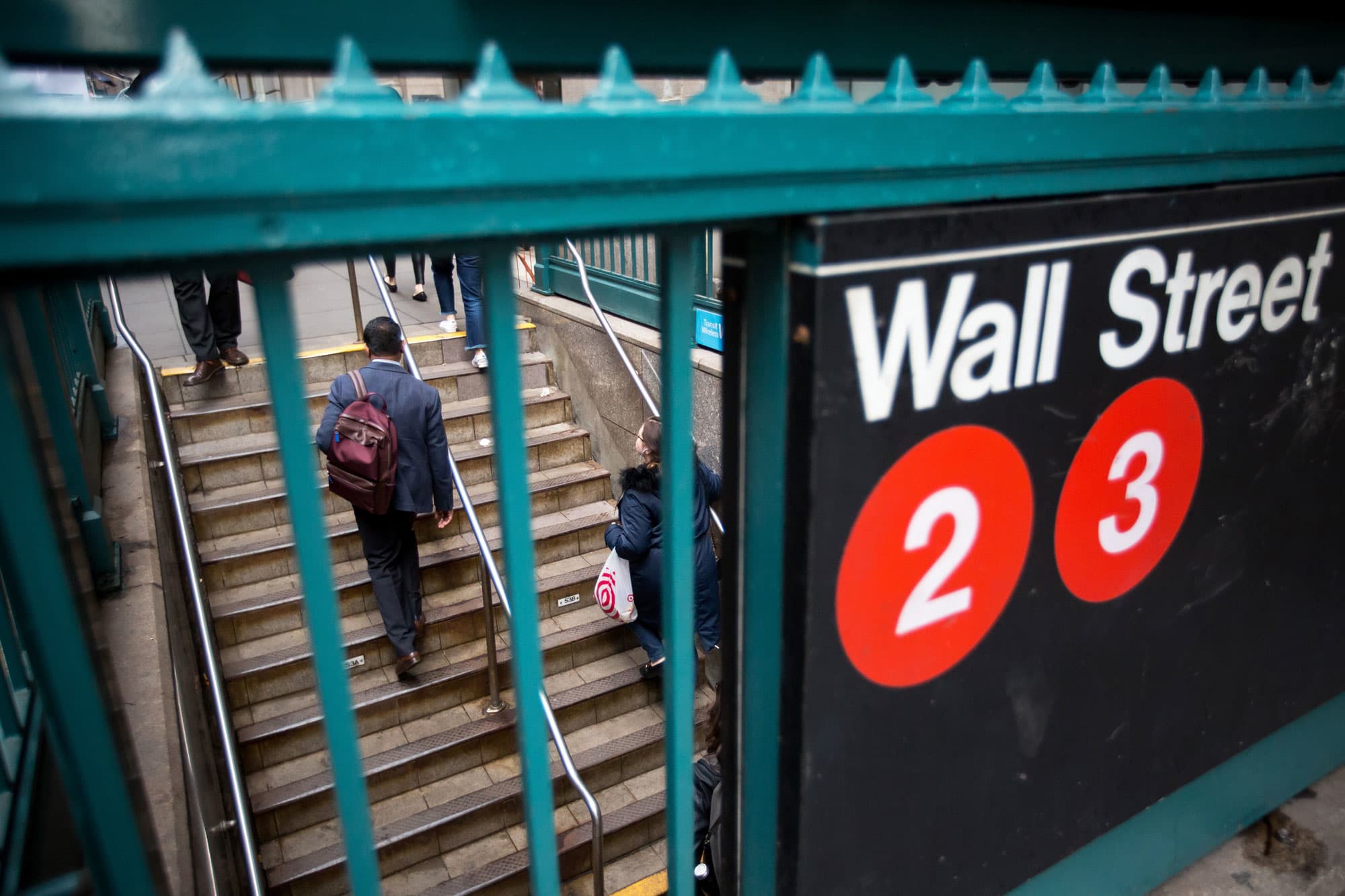Stocks fall in wild session to close out big losing week for tech

Stocks closed lower for a second day on Friday after a wild session in which names that would benefit from the economy reopening tried to offset another steep decline in tech.
The Dow Jones Industrial Average closed 159.42 points lower, or 0.6%, at 28,133.31. At one point, the 30-stock average fell as much as 628.05 points, or 2.2%. The Dow was also higher for a moment on Friday.
The S&P 500 slid 0.8% to 3,426.96, but closed well off its session low. The broader-market index was down 3.1% at its session low and briefly traded positive on the day. The Nasdaq Composite fell 1.3% to 11,313.13, but also closed well above its low of the day.
Boeing shares rose more than 1% while bank stocks gained broadly. JPMorgan Chase and Citigroup were up 2.2% and 2%, respectively. Bank of America climbed 3.4%. Wells Fargo advanced 1.1%. Cruise operator Carnival climbed 5.4% and United Airlines advanced 2.2%.
“We might finally see some rotations that could lead to new market leadership,” said Peter Cardillo, chief market economist at Spartan Capital Securities. “That’s something we’ve been lacking for a long time.”
Shares of major tech companies closed mostly lower. Facebook, Amazon and Alphabet all lost more than 2%. Netflix slid 1.8% and Microsoft dropped 1.4%. However, Apple ended the day up 0.1% after falling as much as 8.3%. Tesla also erased a drop of more than 8%, ended the session up 2.8%.
The S&P 500 tech sector fell more than 1% a day after its worst session since March. For the week, the sector fell more than 4%. Tech’s sell-off came after the space drove the lion’s share of the broader market’s comeback off the coronavirus lows.
“We’ve had excessive valuations in the markets lately — particularly in the tech sector — and that needed to be corrected to some degree,” said Scott Knapp, chief market strategist at CUNA Mutual Group. “One needs to look no further than the recent irrational run-up in Tesla and Apple share prices after both companies announced a stock split to see overexuberance, especially among retail investors.”
Both Tesla and Apple rallied recently after announcing stock splits.
Japan’s SoftBank reportedly bought billions of dollars in individual stock options in big tech companies over the past month, driving up volumes and contributing to a trading frenzy. The heightened options trading activity was credited by many analysts for adding froth to the stock market.
“We view the latest sell-off as a bout of profit-taking after a strong run,” said Mark Haefele, CIO at UBS Global Wealth Management. “Stocks are still well-supported by a combination of Fed liquidity, attractive equity risk premiums, and an ongoing recovery as economies reopen from the lockdowns.”
Tech’s decline this week led the S&P 500 and Nasdaq to snap their respective five-week winning streaks. The S&P 500 fell 2.3% this week and the Nasdaq declined by 3.3%. The Dow fell 1.8% this week.
U.S. unemployment falls
The U.S. unemployment rate fell to 8.4% last month from 10.2% in July, the Labor Department said. Economists polled by Dow Jones expected the rate to decline to 9.8%. As for overall jobs creation, employment in the U.S. grew by 1.37 million in August, topping an estimate of 1.32 million.
“The jobs data today were solid,” said Jamie Cox, managing partner at Harris Financial Group. “However, now the real work begins.”
“The next 2-3% of employment gains are going to be very tough because there is no total reopening in sight. PPP funds are running dry and the impasse in Congress to reauthorize another round for struggling small businesses most affected by the pandemic are recipes for a wave of small business closures,” Cox said.
— CNBC’s Yun Li contributed reporting.
Subscribe to CNBC PRO for exclusive insights and analysis, and live business day programming from around the world.




